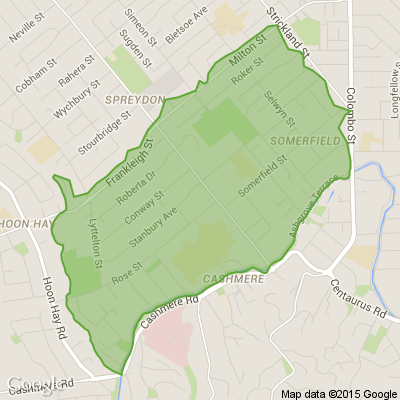Economic disparity at the end of a relationship
How might this impact you?
As much as we like to think we are living in the modern day, there are still a large number of relationships that follow the more ‘traditional’ practice of having one party act as the ‘homemaker’, while the other acts as the ‘breadwinner’. If the relationship breaks up, economic disparity is likely to be an issue.
With the divorce rate in New Zealand sitting at around 50%, chances are you have friends and family members who have structured their relationship in this more traditional sense and have now separated. The result is often that the ‘homemaker’ is left in a worse position financially because they have been out of the workforce for a long time and will struggle to get back into their career. The breadwinner, meanwhile, who could focus on their career during the relationship, is now earning at their full potential. This is economic disparity – one party is advantaged over the other.
One of the principles of the Property (Relationships) Act 1976 (PRA) is that a de facto relationship, civil union or marriage is a partnership of equals and that financial and non-financial contributions to that relationship are equal; the homemaker’s contributions are equal to the breadwinner’s. There is also a presumption of equal sharing of relationship property; but what about the earning potential of one party over the other? If that earning potential has increased during the relationship, should that be considered an asset of the relationship or relationship property?
Can we ‘fix’ disparity?
Section 15 of the PRA allows for one party to be compensated if the income and living standards of the other party are likely to be significantly higher due to the ‘division of functions’ within the relationship – the role of breadwinner and homemaker.
Parliament acknowledged that an equal division of relationship property doesn’t always achieve fairness if one party is able to walk away with not only half the assets, but also a considerable income-earning ability, while the other has foregone theirs and supported the breadwinner in the process. While statistically the party left worse off after separation is almost always female, as the Prime Minister, Jacinda Ardern and her partner, Clarke Gayford have recently shown us, women can be breadwinners too and economic disparity can affect men.
Same-sex couples can also be vulnerable to economic disparity, which can arise in any relationship where one party has been able to progress their career while the other looks after the home.
The Law Commission recently reported that s15 has had limited success in achieving its objective. It found that sharing property equally doesn’t always result in an equal outcome. Following a separation, on average, mothers who are caring for children have their household income reduced by 19% while men in employment increase their household income by 16%. Economic disparity and how to address the issues arising from the more ‘traditional’ relationship roles is a significant focus of the Law Commission in its current review of the PRA.
Recent boost to claims
Economic disparity claims have been given a boost by the recent Supreme Court decision of Scott v Williams. This case involved a couple who structured their relationship in the ‘traditional sense’. Ms Scott, who had accounting and law degrees, put her career on hold to look after the couple’s children while Mr Williams built up a successful legal practice. When they separated after more than 25 years of marriage their incomes were vastly different.
The court ultimately found (after eight years of court battles) that in a long-term relationship, where there is the traditional split of roles between homemaker and breadwinner, and a significant disparity in income, an economic disparity claim can be presumed and compensation should be paid. The amount of compensation is determined on a case-by-case basis. There is no set method for determining the compensation, which does make it difficult for parties to agree.
Since s15 made its way into law in 2001, there have been about 100 cases go through the courts on this point, with only around 40% having been successful. Economic disparity remains a difficult, complicated and emotional topic for separating couples to discuss and on which to agree.
If you have separated and believe economic disparity is an issue, please talk with us to discuss whether this is a claim that may affect you, and how you either negotiate or defend such a claim. A contracting out agreement (colloquially known as a ‘pre-nup’) may assist, if prepared properly from the outset. If you wish to achieve some level of certainty, it would pay to contact us.
Poll: Are quality products on the decline?
Gift-giving looks a lot different these days when you can pick up super-cheap goods made overseas. But do they last?
Do you have any old items like appliances, electronics or clothing that have stood the test of time? Share below!

-
91.5% Yes
-
7.8% No
-
0.8% Other - I'll share below
Only the Sharpest Minds Will Get This Riddle… Are You One of Them?
I twinkle and glow, guiding paths in the snow.
I’m not the sun, moon, or star in the sky,
yet on rooftops and trees, you’ll see me up high.
What am I?
Do you think you know the answer to our daily riddle? Don't spoil it for your neighbours! Simply 'Like' this post and we'll post the answer in the comments below at 2pm.
Want to stop seeing riddles in your newsfeed?
Head here and hover on the Following button on the top right of the page (and it will show Unfollow) and then click it. If it is giving you the option to Follow, then you've successfully unfollowed the Riddles page.

Appointments available
Hi neighbours,
Just to say the Christmas season is nearly here and if anyone out there is needing their feet tidied up please feel free to text or phone me on 0220451091 for an appointment.
Nancy Yates RN
Footcare Nurse






 Loading…
Loading…


























